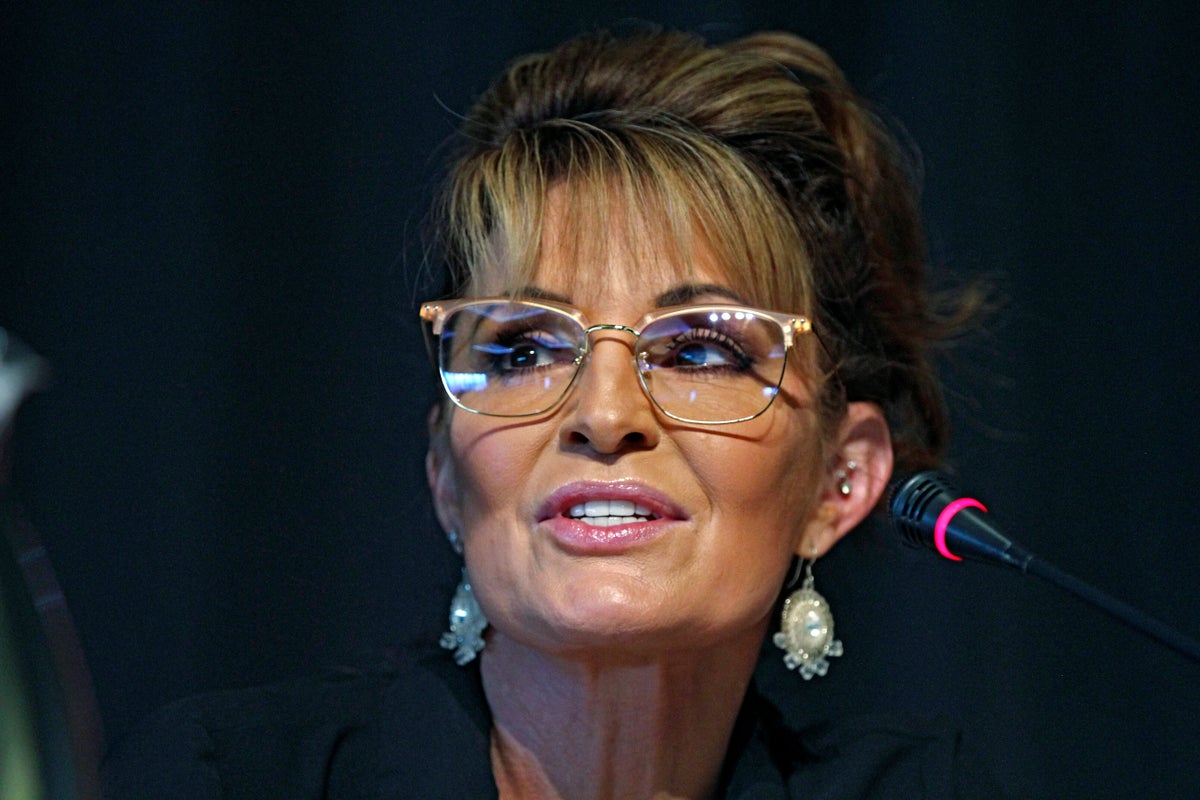
The race for Alaska's U.S. House seat is taking shape, with Republican Sarah Palin seeking a return to elected office 13 years after she resigned as governor and two of her rivals, Republican Nick Begich and independent Al Gross, trying to paint her run as unserious and self-serving.
The fourth candidate running, Democrat Mary Peltola, said negative campaigning and “tearing each other down" is the “most unsavory" part of American politics. She said she hopes the next stage of the race, an August special election featuring ranked choice voting, will help discourage that.
Palin, the 2008 Republican vice presidential nominee, referred to Begich and Gross as “silly boys” taking “pot shots.”
Palin, Begich, Gross and Peltola — in that order — were the top vote-getters among 48 candidates in last week's special primary. The election was the first under a system approved by voters that ends party primaries and institutes ranked choice voting in general elections.
The four advance to the special election. The winner of that contest will serve the rest of the late Republican Rep. Don Young's term, which ends in January. Young, who died in March, held the seat for 49 years.
Palin attributed her decision to resign in 2009 to an onslaught of records requests and ethics complaints that she said were frivolous and had become time consuming and distractions. She said she “did the right thing.”
Palin largely stayed out of Alaska politics after resigning. But hers is a household name. She has written books, appeared on reality television and conservative media programs and promoted her work on Cameo, a site where people can buy personalized video messages from celebrities. She was endorsed in this race by former President Donald Trump.
She notes her experience in state and local government. She also said she considered Young a friend and didn't run against him.
Begich, a co-chair of Young's 2020 reelection campaign, began running for the House seat last fall, saying at the time that Alaska “needs new energy.”
The businessman touts his private sector experience. He also said he sees this as a race between him and Palin, whom he said “makes a living essentially as a human Hallmark card doing celebrity videos.”
“At a time when our nation is facing serious challenges and even crises, it's critical that we send people to D.C. who don’t simply rattle off memorized rhetoric but are deep thinkers with the ability to solve real-world problems,” he said.
Begich said he hopes Palin attends more forums during this phase of the race.
Gross, on social media, said he will “always fight for Alaskans — unlike my opponent Sarah Palin, who quit on the Alaskan people as Governor and chose money and fame over hard work.”
David Keith, a Gross campaign consultant, said Gross is comfortable running a “contrast campaign" with all the candidates.
“I don't think anything we've done, and I don't think anything we will do, could be seen as nasty,” Keith said, adding that the campaign plans to show contrasts “in a pretty stark fashion.”
Keith said this is a “serious time” that calls for serious conversations.
Gross, an orthopedic surgeon, ran for the U.S. Senate in 2020 with the endorsement of state Democrats.
But in the House special primary, Alaska Democratic party leaders urged voters to pick from among the six Democrats running.
The party, in a social media post, had referred to Gross as “pandering” after Gross in a newspaper interview did not commit to caucusing with Democrats if elected. Gross later said he would.
Keith referred to the post as a “juvenile act,” and said the traditional party structure is broken.
Peltola, while running, has been on sabbatical from her job as executive director of a commission that aims to rebuild salmon resources on the Kuskokwim River. She served five terms in the Alaska House and cited her experience in elected office and public policy.
Peltola, who is Yup'ik, said it's possible to make a difference in a divided Congress “by showing up and participating in the discussion, quote-unquote, from a place of love. And I know that sounds corny, and it's easy to dismiss that. That is a Yup'ik teaching that, in order to be productive and successful, you have to come at your challenges from a place of love.”
“Certainly when you're coming to a very emotionally charged discussion, you can’t show up with a list of demands, looking at everyone around the table as your enemy,” she said. Peltola said she learned that as a legislator.
She said she's been struck by the number of Alaskans she's talked to who have said that their main concern is “preserving democracy, civility, respectfulness.”
A U.S. House special committee has been holding hearings on the Jan. 6, 2021, insurrection at the U.S. Capitol.
Palin said Trump “did not incite violence.” She called the people who stormed the Capitol “idiots.”
Begich said Congress “really needs to focus on the needs of everyday Americans today,” citing inflation and other economic issues. He said he's hearing from people “who don’t have the ability to fill their (gas) tank completely, people who are making hard choices about what to put on the table, whether to get their kids new clothes. These are starting to become very difficult problems for everyday Alaskans.”
Gross was not immediately available for an interview.
Peltola said she does not think that the country collectively has moved on from the Capitol riot.
“I think that calling an insurrection an insurrection is important and it's part of the way that we work through this,” she said. “I do think that we have a long way to go in bringing people together.”







